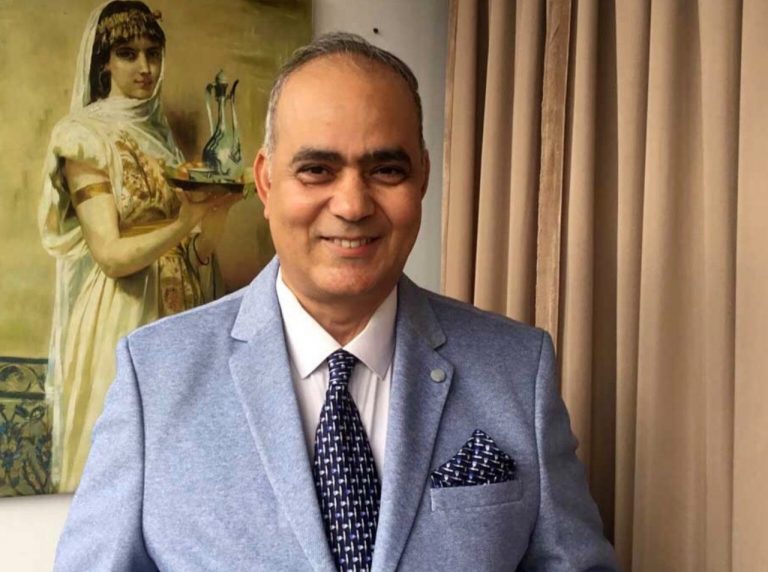
‘My novels are daughters of my travel literature’ -Al-Ahram interviews poet and novelist Ashraf Aboul-Yazid
[Ashraf Aboul-Yazid combines being a novelist, a poet, a journalist, a travel writer and an author of children’s literature with distinction in all these fields. He has worked in cultural journalism for more than three decades. He was chosen as the Cultural Personality of the Year in the Republic of Tatarstan, Russian Federation in 2012. He received Manhae Prize in Literature, South Korea in 2014, he also won the Arab Journalism Award in Culture in 2015, and was awarded the Gold Medal at the Eurasian Literary Festival, Istanbul, 2021. He is the president of the Asia Journalist Association, and the editor-in-chief of the Arabic version in “The Asia N”; Next News Network, which is published in Seoul in the Korean, English and Arabic languages with its paper sister, Magazine N, and the National Coordinator of the World Poetry Movement in Egypt. About his creativity and achievements, Al-Ahram editor Gehan Imam interviewed him. Sindh Courier reproduces his interview courtesy: al-Ahram]
When you started working with Al-Arabi magazine, you began with travel literature, visited many countries, and was keen to show the positive aspects in each country you visited. What do these travels mean to you?
My early readings of travels made and written by great travelers were what inspired me the most, then I met contemporary travelers in the East and West who increased my enthusiasm. Working in a magazine interested in travel literature, “Al Arabi” I visited more than 33 countries during two decades, whether on business trips, or private ones. I have always lived on travel, and travel literature has become an integral part of what I write.
Travellers Literature and rhetoric
What did attract you to travel literature? What did that field add to you as a writer?
The journey is the basis of all literature and arts types. Travelers have to be familiar with arts that are at the heart of what they see, such as architecture, and they, as writers, have to choose characters to act the starring roles in their travels, as playwrights, novel narrators, and poets do, then their language must move away from ordinary declarative language, to be eloquent language. For me, I let readers see how my travels included poems when the place fits the article. Travel literature has added to me another dimension that is fully reflected in my novels, as the characters of these novels mostly live outside their countries, or they travel to different destinations. The travel literature helps me transforming the lived reality into a fictional reality, and this makes any travel a literary entity on its own, no less than a novel or a poetic book.
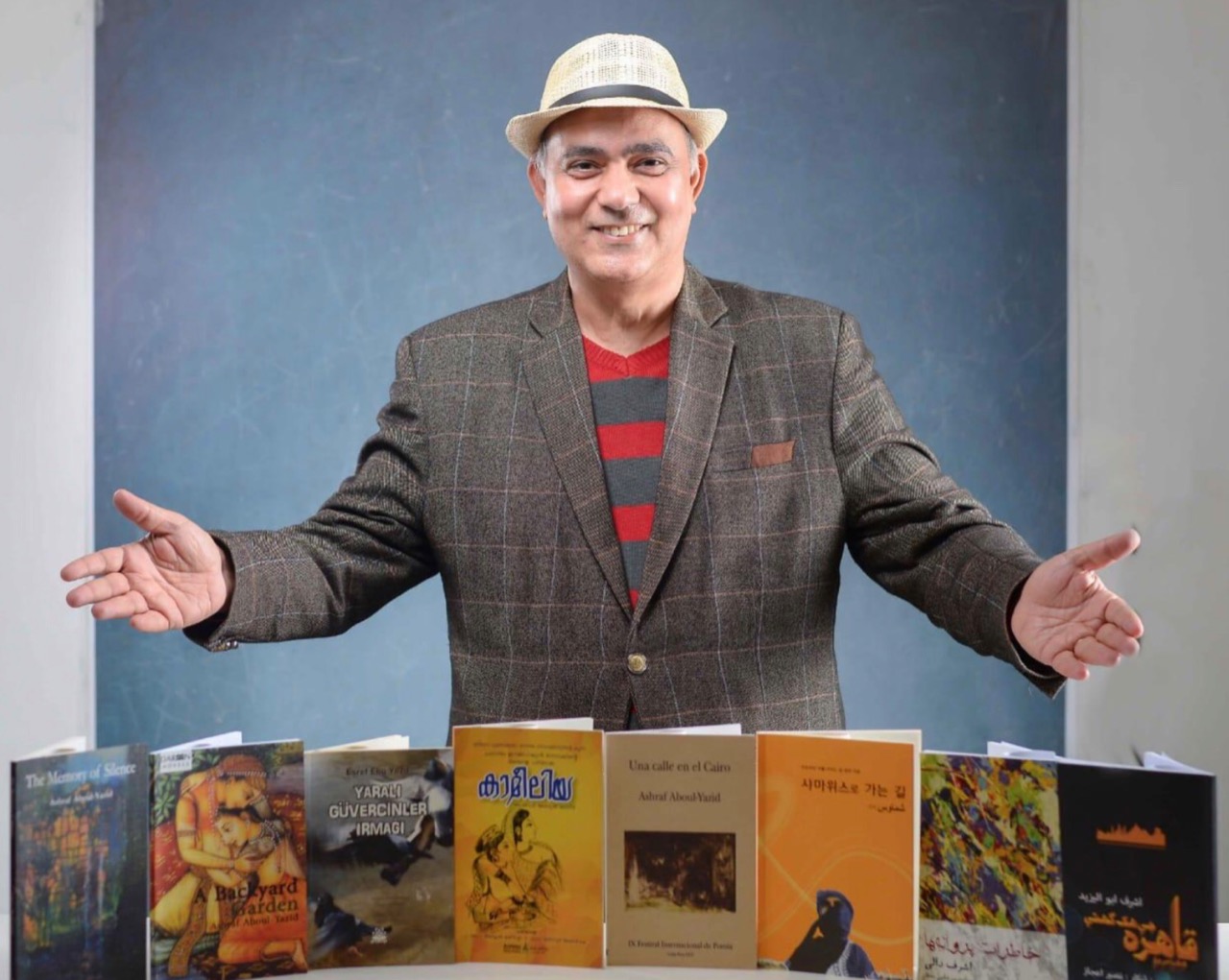
Some of your poetry and fiction books were published in English, German, Spanish, Korean, Turkish, Persian, Sindhi, and Malayalam in India. How did these translations benefit your literary path?
The translation of my first novel into Korean (2008) was one of the reasons why I won the prestigious Manhae Prize in Literature (2014). There is no doubt that the presence of a literary work, whether in its original language or in translation, provides support for its author’s candidacy for prizes.
Meaningful prize
What about the Arab Journalism Award in culture?
The same thing, at that time (2015) I won the award for writing a travel on “miniatures” in literature, history and legends; which, as you can see, combines the journey and a research without which the journey would not be complete, and the imagination that only literature transcends. The journey is no longer a description by a pen, as the camera does better. Creativity generally requires the use of numerous research and literary filters.
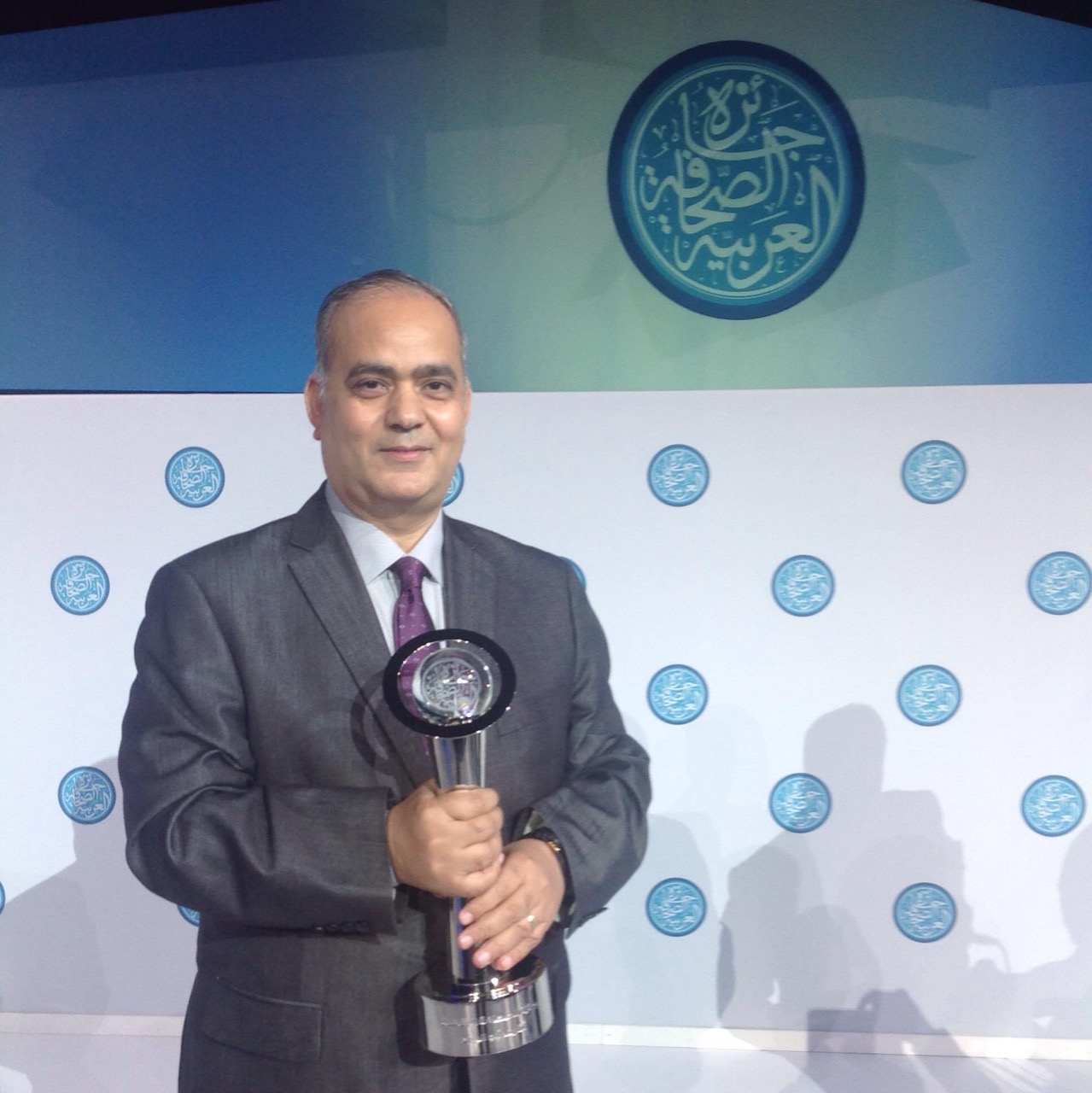
Your writings vary between poetry, novels and children’s literature… Which of these literary works was the closest to your soul as a writer?
The journey of letters began with writing poetry, as it is like the first love; it has an emotional value, and I still write it with love, Living poetic evenings in which I recite my poems in Arabic and English, but my personal and practical journey took me to more spacious worlds, as dialogue is no longer enough between me and poetry, and my dialogues originated in the novel, and travel literature, which encourages me to research, and my love for drawing did not end, as I practiced it since I was young, and my latest book on Naguib Mahfouz (Narrator and Artist) confirms this passion for art.
With children’s literature
There is a prevailing belief that a writer who writes poetry and novels is difficult to write in children’s literature?
This can be said about the difficulty of combining the disciplines of medicine, but in the world of literature, the writer must be distinguished by his ability to imagine, and what pens owners need is mastery of language, and sufficient knowledge of all worlds, because they will not write in isolation from science, literature and arts. I believe that anthropologists and sociologists are most able to write for a child if they possess the rich literary language appropriate for the child’s age stages.
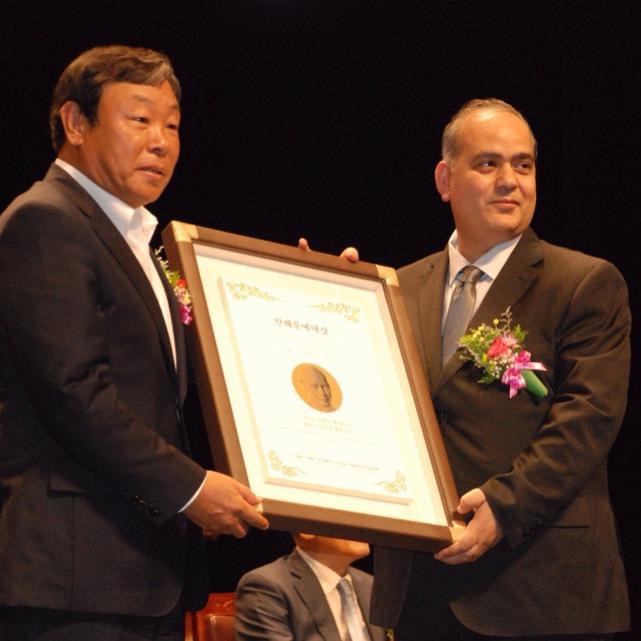
What is your assessment of children’s literature in Egypt and the Arab world?
There has been a huge leap in the product offered to children, and the prizes for writers of children’s literature have contributed to that, just as the number of publishing houses that address these new generations have increased. This increase in quantity will therefore provide an increase in quality. It is important to support new talents, encourage imagination, and integrate science and a spirit of adventure and discovery into the writing of the child.
Your novel for young people (My Cat Writes a Book) was nominated for the Sheikh Zayed Book Award. Was this a step to correct the concepts about writing for children?
My believes were included in this book, I am convinced of the importance of science and its inclusion in texts directed to children, and I am interested in respecting all beings, in addition to the fact that suspense is an essential part of writing for the younger generation. (My Cat Writes a Book) has it all together. Before the awards, I had a book for children that told the history of plastic art in Egypt over five thousand years, written for children, and represented an invitation to study our civilization and its arts through the ages.
Poetic Narrative
There are studies done on your books in India.
There is more than one university thesis about what I write of novels, poetry, and travel literature, but the most important one is that researcher Sabina K. Abbas has a PhD on the poetics of narration in my novels, and two master’s studies on travel literature, especially my travels to India, as well as teaching some of my poems in educational curricula in India and Lebanon.
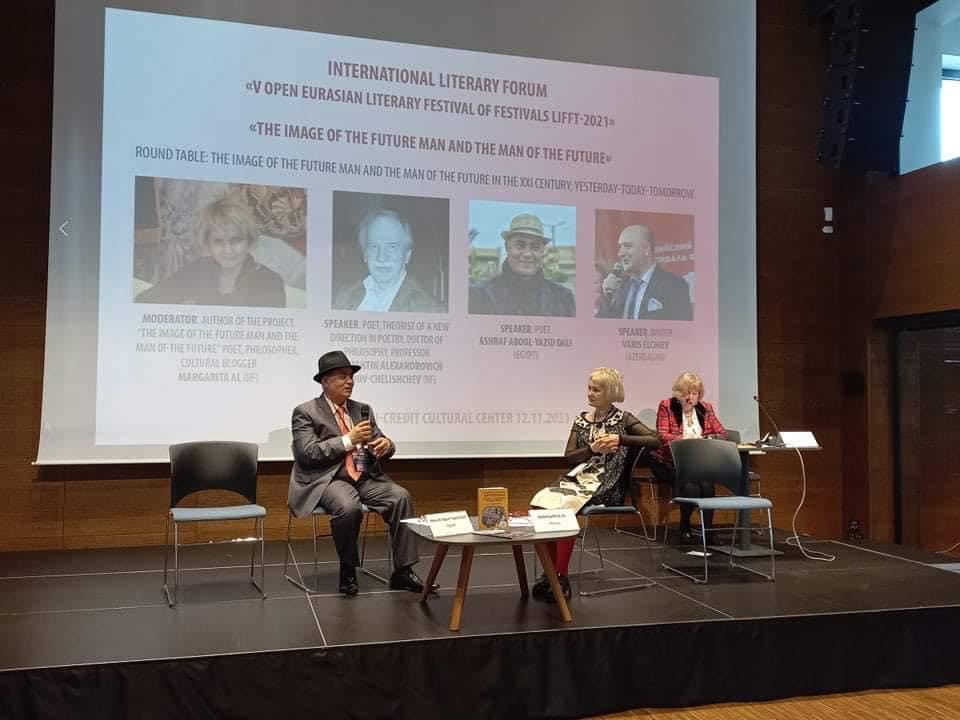
I congratulate you on recently winning the Gold Medal in the Eurasian Literary Festival.
Thank you. I am proud of this award because it comes, according to the festival committee, in honor of my cultural role on the Silk Road, whether through the Anthology project of Silk Road creations, which united the creative potentials of writers from the Pacific Ocean to the Atlantic Ocean, for education and creativity, or by presenting a series of literary works for children and adults about the peoples of the Silk Road and its history, most notably my Arabic illustrated encyclopedia (The Silk Road), which was published by the Alexandria Bibliotheca.
_____________________